Faulty valve bodies, worn-out gears, damaged solenoids, gear filter clogs, faulty torque converters, damaged clutch discs, etc., could be the reasons for delayed shifting when accelerating.
There could also be issues with the transmission control module. However, there are effective diagnose and fixes that you can implement to get this transmission delay shifting issue looked for in no time.
So, want to know them all? Binge on till the very end of this blog.
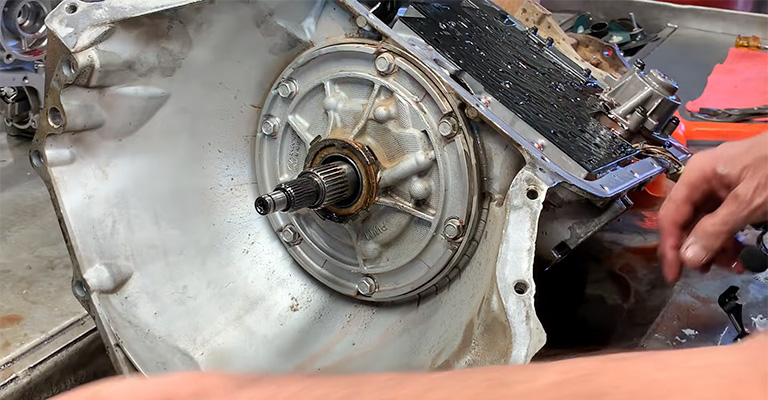
Automatic Transmission Shifting Issues
Delayed shifting is the delay between shifting into gear and the transmission response. Sometimes, the delay could even last 30 seconds to 1 minute.
If it takes more than a minute, it’s more likely that it won’t respond. This means you have to take it to a mechanic to fix the issue.
There can be a lot of reasons why the transmission may take more than the required time to respond.
Let’s take you through the most common culprits of shifting delay issues.
Dirty Gear Oil
The gear oil should be checked frequently to maintain a vehicle’s health. If it’s not looked after for a long time, unclean gear oil can gather and cause several transmission problems, and delayed shifting is one of them.
Dirty gear oil could overheat the transmission and cause major issues with the transmission.
Low Transmission Fluid
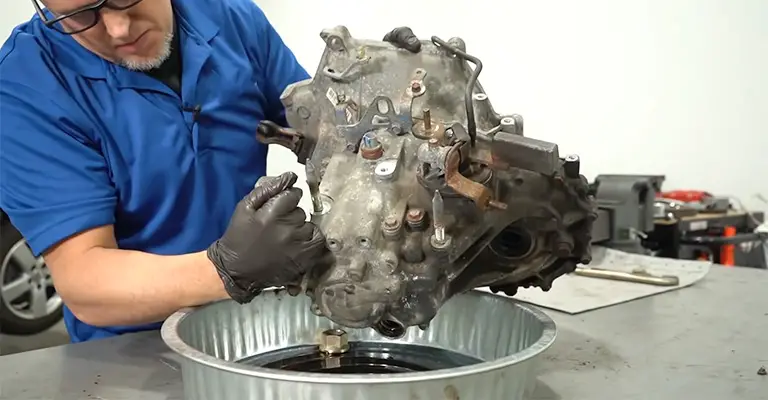
Transmission fluid is the lifeblood of transmission. If the fluid is low, there are supposed to be certain transmission drawbacks.
The major reason for low transmission fluid is leakage.
If the transmission fluid leaks, it’s a serious concern, and that’s why it should be checked at least twice a year!
The fluid is generally red in color. However, it could also be undyed; it should be colorless. Checking for transmission fluid leakage is not a hard task.
All you got to do is check at the following places −
- The filler tube’s base
- Between the transmission and the engine
- The selector shafts
- Any position where the speed sensor is mounted
Overheating Transmission
The automatic transmission cannot operate without the transmission fluid. Overheating problems occur if there’s a flaw with the transmission fluid.
The transmission could malfunction if the fluid is low, burnt, or dirty. It could also damage the other related parts of the vehicle over the course of time.
Faulty Solenoid
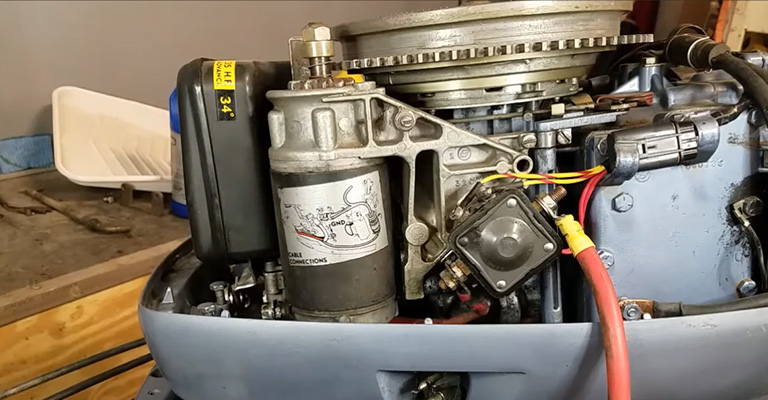
The solenoid is probably defective, and the starter may sustain serious damage due to the starter activating but doesn’t deactivate when you release the key.
Faulty solenoids could also lead to delayed shifting when accelerating and severely damage your vehicle.
Worn Gears
The gears in your vehicle could wear out over time. There could be many reasons for the gears to wear out, but if they do, transmission delay could be a possible side effect due to transmission slipping.
Damaged Clutch Disc
Your gearbox slides if you press the gas pedal, yet the car doesn’t go forward while the engine roars. This could also lead to delayed shifting!
If the clutch discs are damaged, your vehicle will likely face such issues.
Bad Torque Converter
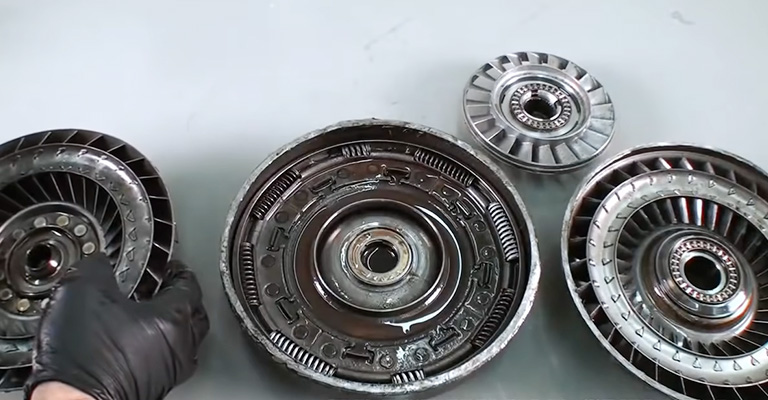
Damaged needle bearings or impaired seals and clutches can cause the torque converter to malfunction.
Again, if the clutch solenoid malfunctions, it could release higher or lower fluid than the optimum level.
All these things can damage your torque converter and, as a result, cause transmission delay.
Valve Body Issues
The valve body is the core part of a transmission system. If you hear knocking noises when changing gears or notice the RPM increasing when you shift up, there’s probably a defect with the valve body.
That’s not all; the various components of the car are bound to wear out over time, and the valve bodies aren’t indifferent to it. Damaged valve bodies are often the roots of transmission issues.
TCM Issues
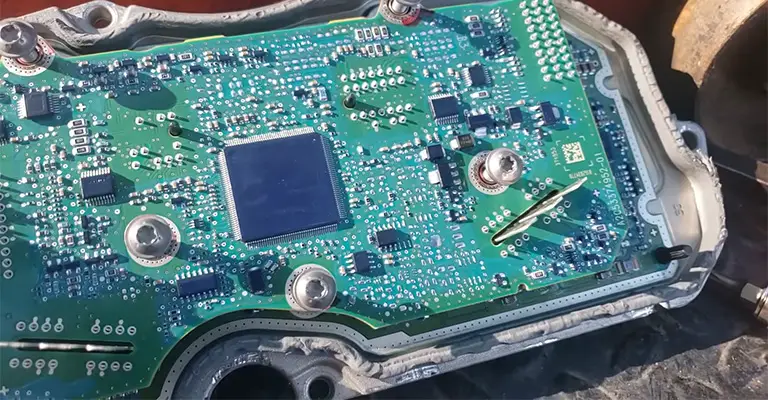
The TCM or Transmission Control Module affects the operation of several parts of your car, including the charging system and transmission.
Long-term use or excessive heat from your car’s engine might damage the component and impair its performance. In most instances, a burned circuit is to blame for its failure.
A defective transistor or resistor can cause it to burn. Engine stalling and functioning difficulties occur when the TCM malfunctions.
Clog in the Transmission Filter
If you hear rattling noises when you shift to drive, there’s probably a clog in the transmission filter.
Check the transmission filter; if the fluid seems black, the filter may be blocked, preventing flow which, as a result, delays the shift.
Possible Fixes for Transmission Delay
The core reason for transmission delays is poor maintenance. If all the transmission system parts are not monitored regularly, they could wear out over time and cause various problems.
Check the Transmission Fluid
The first and foremost thing you should do when you notice a transmission delay is, check if the transmission fluid is okay.
If the fluid is dark and gives a putrid smell, or even if the level is low, you should consult a mechanic immediately.
Change Your Transmission Fluid
It’s a good practice to change the transmission fluid at least twice a year since it keeps the automatic transmission running.
Moreover, transmission fluid is also responsible for lubricating the internal components and even acts as a coolant to avoid overheating.
Inspect the Gear Filter and the Hydraulic System
Check if the gear filter is clogged and change it promptly. Moreover, a failing hydraulic system will likely result in delayed engagement and potential internal damage if the pump cannot provide enough fluid pressure.
Get the pump checked by an expert mechanic if you notice a shifting delay
Final Thoughts
So, we believe you should now clearly understand what causes a transmission to delay shifting and what you can do to get it fixed!
Transmission delay could be very irritating at times, and it could also be detrimental to your vehicle’s condition.
If the delay is more than a minute, you need to take the car to a service shop to make it run. But even if the car engine starts after a short delay, you should make sure everything’s alright.
If little things are left unnoticed, they could cause serious problems in the future. Moreover, repairs can also get costlier whenever you ignore the smallest issues.
Leave a Reply